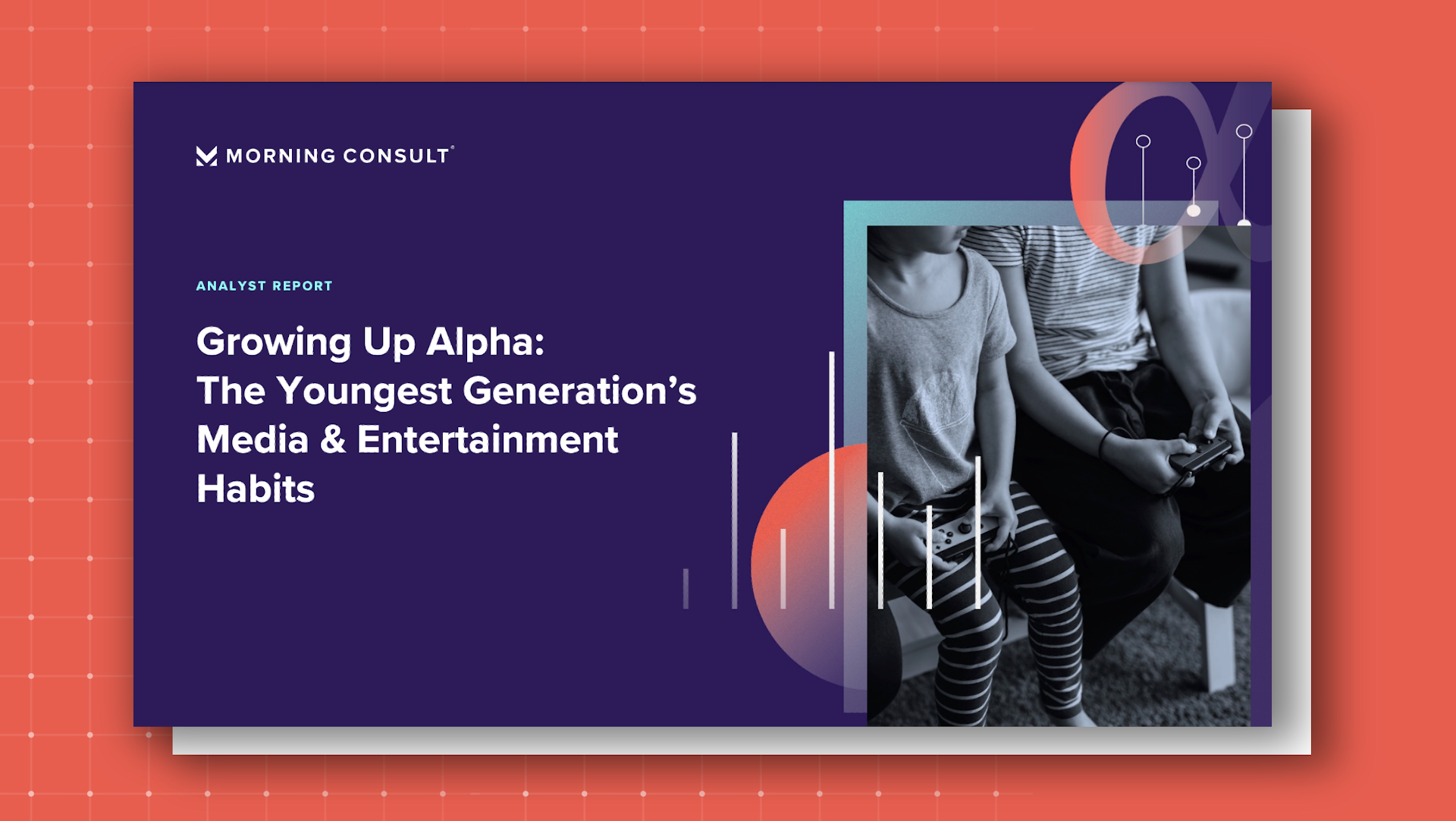Gen Alpha Parents Are Making Major Changes to Afford Childcare

Key Takeaways
46% of Gen Alpha parents say they had to make changes to their spending to pay for childcare, with 20% of that share saying the changes they made were significant.
High income households are most likely to be making drastic changes to their budgets to afford care for their young children, likely because they are also most likely to pay for childcare.
9% of Gen Alpha parents in high income households say they pay between $2,000-2,499 for childcare, about the same cost of the average monthly home mortgage payment in the United States.
Data Downloads
Pro+ subscribers are able to download the datasets that underpin Morning Consult Pro's reports and analysis. Contact us to get access.
Download our latest Gen Alpha report to learn more about the youngest generation’s media and entertainment habits.
Raising children in the United States is expensive and not getting better for today’s parents. New research shows that many Gen Alpha parents, defined as adults with at least one child under age 11, are making significant changes to their spending to simply afford care for their kids.
Paying for childcare means big budget changes for many Gen Alpha parents
One in five Gen Alpha parents say they had to make “significant changes” to their spending to pay for childcare. And while the cost of childcare typically lessens as young children age from infant to school age, the pressure on parents’ budgets doesn’t seem to be letting up. Parents with children ages 0-4 were just as likely to say they made “significant changes” to their spending as parents with children ages 8-10 (21% vs. 19%).
High Earners Are Making Significant Cutbacks to Pay for Childcare
Household income does factor into the level of change necessary to pay for childcare but having more income doesn’t mean less changes are necessary, in fact, it’s the opposite. High earners, those with an annual income of $100,000 or more, are more likely than lower-income households to say they made changes to their spending to pay for childcare. Nearly 3 in 10 (27%) high earning Gen Alpha parents said they made “significant changes” to their spending to pay for childcare, 11 percentage points higher than Gen Alpha parents with a household income of $50,000 or less.
This is due to a number of factors, but one key reason is simply these higher earning parents are more likely to say they’re paying for childcare in the first place. About a quarter (27%) of high-income Gen Alpha parents say they do not pay for childcare, 23 points less than low-income Gen Alpha parents.
Half of high-income Gen Alpha parents spend $1,000 or more a month on childcare
Unsurprisingly, high earners are paying the most for childcare, and the exact monthly cost is no small amount. Roughly half (48%) of Gen Alpha parents with a household income of $100,000 or more say they spend at least $1,000 on childcare each month, with 9% saying they pay between $2,000-2,499, about the same cost of the average monthly home mortgage payment in the United States.
How Much Gen Alpha Parents Spend on Childcare
Lower-income Gen Alpha parents are more likely to be spending less than $500 a month on childcare than high-income Gen Alpha parents (24% vs. 13%), but that doesn’t necessarily mean fitting childcare into their budgets is easier. Given their overall household income is smaller, their dollars don’t stretch as far. Plus, having to stop or decrease the amount of time they work to care for their children may be holding back their earnings, as well as the economy in general.
A 2023 study from ReadyNation found that the U.S. economy is losing $122 billion in earnings, productivity, and revenue every year due to parents leaving the workforce to care for their young children. But given the rising costs and limited access to affordable, reliable childcare, many parents may feel like they have no choice but to stay home.
Rising labor costs, return to office mandates will continue to pressure working parents
Myriad factors influencing the cost of childcare will put more pressure on Gen Alpha parent’s budgets in the future. First, childcare providers are grappling with rising costs for food and supplies due to inflation and receiving less government support after pandemic-era relief expired last September. Daycares may also find it hard to recruit workers without increased wages, since childcare is typically one of the lowest paying jobs in the country and this field could grow even less attractive as wages at retail or food service jobs grow more competitive.
Furthermore, these rising costs are happening alongside increased return to office mandates. Working mothers with young children, who typically work less than women in general, greatly benefited from remote work and flexibility ushered in by the pandemic. It even led to women’s labor force participation rate hitting record highs, but with stricter in office mandates, we could see more working mothers exit the workforce to care for their children. Those that continue to work will need more childcare to support longer commutes, and that increased demand could push up costs even further.
Download our latest Gen Alpha report to learn more about the youngest generation’s media and entertainment habits.
Nicki Zink is deputy head of Industry Analysis. Her team identifies trends affecting key demographics across food & beverage, travel & hospitality and financial services. Prior to joining Morning Consult, Nicki served as the head of digital intelligence at Purple Strategies, a corporate reputation and strategy firm. She graduated from Miami University with a bachelor’s degree in mass communication. For speaking opportunities and booking requests, please email [email protected].


